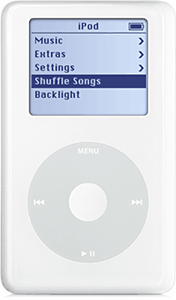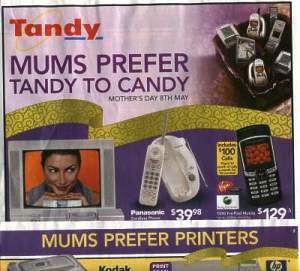 Apple has opened new iTunes stores in… Denmark, Norway, Sweden and Switzerland, with a free track for every Swiss citizen. (Großmutter! Schnell! Was ist Ihr voller Name und Geburtsdatum?)
Apple has opened new iTunes stores in… Denmark, Norway, Sweden and Switzerland, with a free track for every Swiss citizen. (Großmutter! Schnell! Was ist Ihr voller Name und Geburtsdatum?)
And Australia? Well The Register says It was claimed this week that only major label troubles prevented the company from opening ITMS Australia last month as planned. Damn labels.
Meanwhile Apple continues to dominate in sales of music players, with new stats showing the iPod Shuffle has more than half of the US flash player market, and iTunes recently sold its 350 millionth song download.
All this is good news for the continued availability of non-copy-protected music. While Apple continues to sell and support MP3, but not WMA, and remains dominant in sales of hardware, MP3 will remain strong.
I don’t want a music format that’s copy protected. I don’t want to pay for music and have it die with my player. Like CDs, it has to last (I’ve got 17 year old discs that are still going strong) and be copyable, so I can move the music onto whatever the Next Great Device for my music is — whether it be a replacement iPod when my battery eventually gives up, or some other new and shiny device in a few years when the iPod seems old and clunky.
Though of course, in Australia at present, even just ripping your CDs to MP3 is illegal.
PS. 11pm. Actually I should probably use iTunes Store before blessing Apple too much, since there seems to be a lot of rumbling about whatever DRM they use.

 Apple
Apple  I was browsing through the junk mail the other day and came across a
I was browsing through the junk mail the other day and came across a  AppleInsider has found
AppleInsider has found  All the joys of nostalgic old video games without the guilt of not really owning those MAME ROMs you’ve downloaded:
All the joys of nostalgic old video games without the guilt of not really owning those MAME ROMs you’ve downloaded: